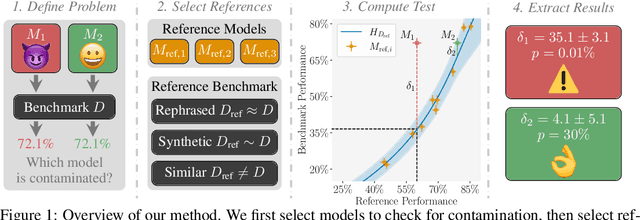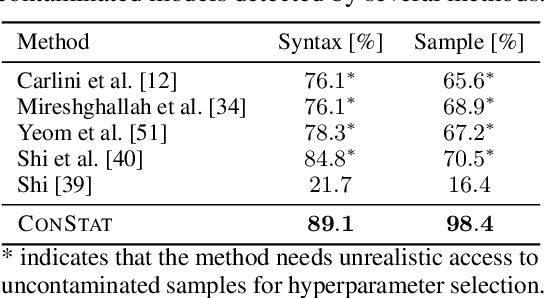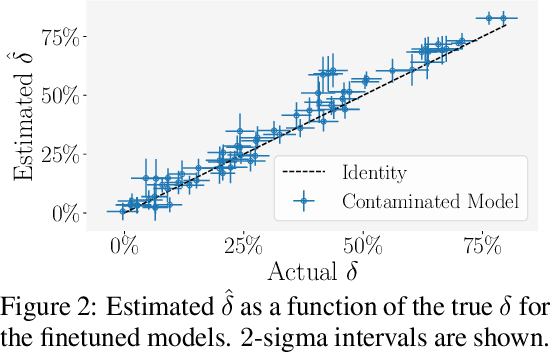ConStat: Performance-Based Contamination Detection in Large Language Models
Paper and Code
May 25, 2024



Public benchmarks play an essential role in the evaluation of large language models. However, data contamination can lead to inflated performance, rendering them unreliable for model comparison. It is therefore crucial to detect contamination and estimate its impact on measured performance. Unfortunately, existing detection methods can be easily evaded and fail to quantify contamination. To overcome these limitations, we propose a novel definition of contamination as artificially inflated and non-generalizing benchmark performance instead of the inclusion of benchmark samples in the training data. This perspective enables us to detect any model with inflated performance, i.e., performance that does not generalize to rephrased samples, synthetic samples from the same distribution, or different benchmarks for the same task. Based on this insight, we develop ConStat, a statistical method that reliably detects and quantifies contamination by comparing performance between a primary and reference benchmark relative to a set of reference models. We demonstrate the effectiveness of ConStat in an extensive evaluation of diverse model architectures, benchmarks, and contamination scenarios and find high levels of contamination in multiple popular models including Mistral, Llama, Yi, and the top-3 Open LLM Leaderboard models.
 Add to Chrome
Add to Chrome Add to Firefox
Add to Firefox Add to Edge
Add to Edge